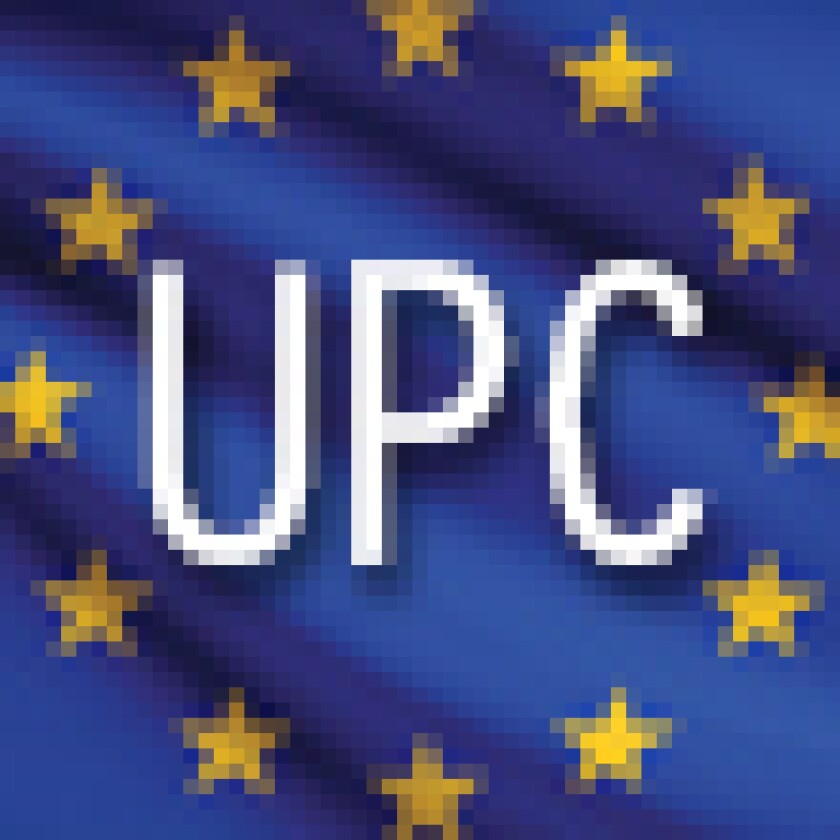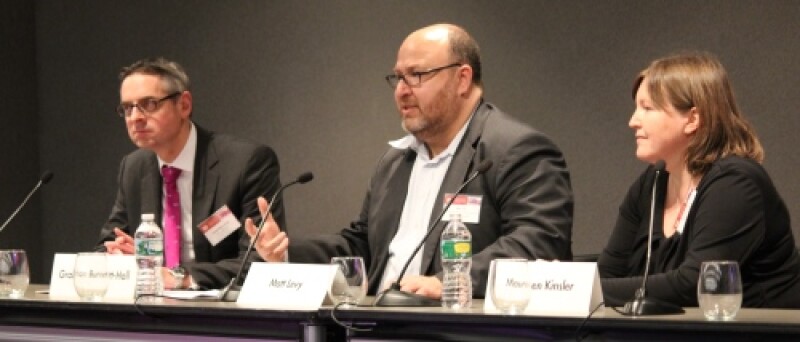
Many topics were discussed at the European Patent Forum USA in New York on December 8. With the new Unified Patent Court (UPC) now expected to come into force in early 2017, IP practitioners in the US are taking an increased interest in how the Court and the introduction of the Unitary Patent (UP) will affect them and what they should be thinking about to prepare.
Here are some of the themes that emerged from the sessions.
Should you opt in at all?
The UPC presents advantages and disadvantages. Opt out is available for pre-granted European patents, European patents granted during the opt-out period and European applications filed during the opt out period. The initial transition period is seven years, which may be extended by seven years.
Some of the pros of opting out are avoiding a central attack and avoiding third parties forcing you to untested courts.
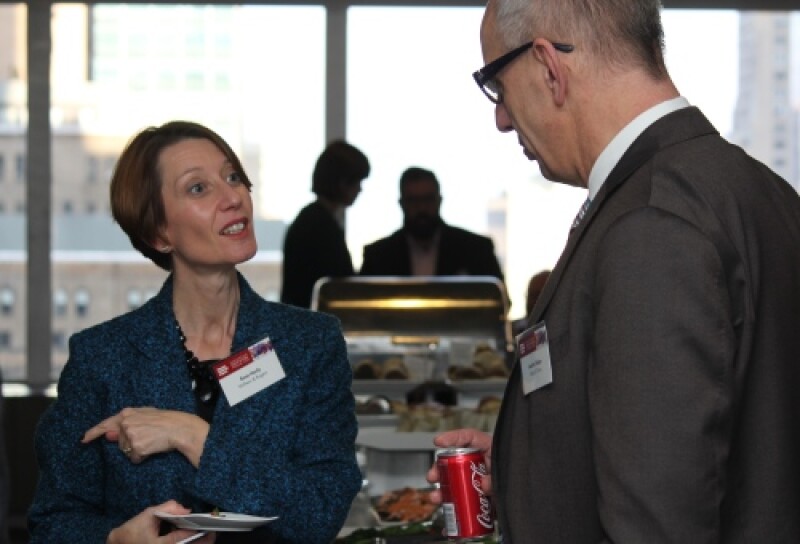
Some of the cons are giving up the chance to get a pan-European injunction or pan-European damages. And, as Marianne Schaffner, partner at Dechert, noted, by opting in you have more control: “The first players are going to define the game. They are going to make the jurisprudence.”
Some of the in-house counsel at the conference made cautious noises about the question of opting in or not.
“I have to say, I’m pretty happy with the current system,” said Philip Strassburger, vice-president and general counsel at Purdue Pharma. “In the specialised courts, the judges really know what they are doing and my feeling is that we get a fair hearing. For the last five to eight years I’ve felt they are fair, even when we lost. I have a feeling of predictability.”
The UPC takes away this predictability, and Strassburger said it will take time for a culture to emerge. “With the new court, the rules look good,” he said. “I think it has promise. Hopefully, it is the best of all worlds. But for the next few years it will have a lot of unpredictability. Before we put really important patents in that Court I think we will see first what is coming out. We may end up with a two-tier approach, where our main patents remain out. I don’t think it will necessarily be an all-or-nothing system at the start.”
This view was echoed by Matthew Golden, chief counsel of global patents at Mondelēz International, later in the day. “I won’t be looking to put our key patents in the UPC right away. But from a defensive standpoint, I hope our competitors do,” he said.
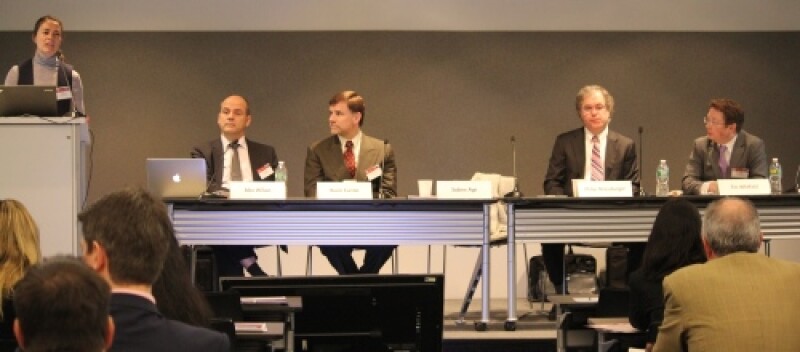
In contrast, on a different panel Russ Merbeth, chief policy counsel at Intellectual Ventures, said the uncertainty of the new Court was appealing to the non-practising entity, especially when compared to the United States.
“We are looking at the efficiency of the process, the certainty of outcomes, and the consequences of those outcomes,” he said. “Our conclusion is that the devil you know is not really as interesting as the devil you don’t know, because the devil you do know has terrible, terrible numbers at the moment.”
On the same panel, Ian MacKinnon, counsel at IBM, said he believed that patents in Europe are examined better, and that a large market is being opened up through the new system. “One thing I think is really interesting is the GDP of Europe is larger than the US right now. So if you looking at all of Europe, you have got a larger market available to you.”
Merbeth agreed. “We are not a traditional operating company but that doesn’t mean that we are different. The surface appeal for us with the UPC is the access to larger markets but we have long been fans of European patents because of the high quality when we analyse them.”
He compared that with the high invalidation rate coming out of Patent Trial and Appeal Board (PTAB) proceedings in the US, which he said was “not a very exciting figure to base your strategy on”.
IBM’s MacKinnon added: “We want people to have enough concern when we show up that we talk about settlement. In the US, there is definitely an issue with that.”
They were also attracted to the UPC’s one-year process.
Paul Coletti, associate patent counsel at Johnson & Johnson, said it will be the sort of situation seen 40 years ago with the institution of European patents. “Certain companies of all sectors will not opt out so they can see what waters look like,” he said. “At the same time, others will say they don’t want to be the test case and will opt out or maybe go back to the old system.”
Will trolls get involved?
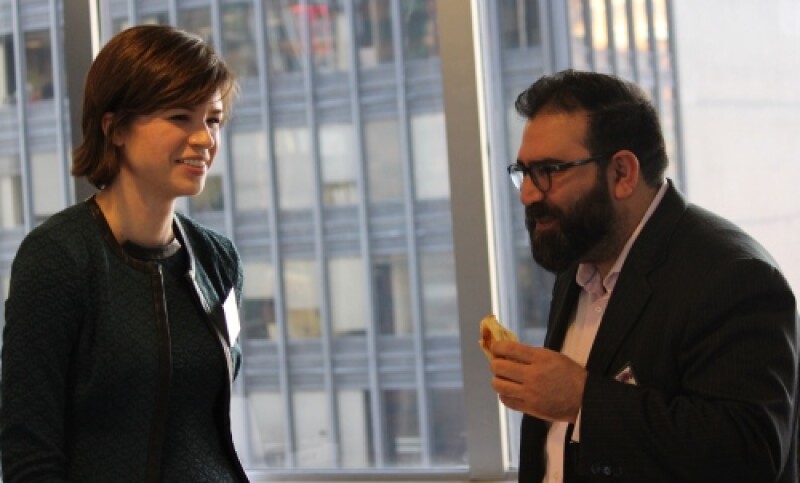
Speakers said the new system would likely lead to an increase in litigation in Europe.
“It will make the European system more attractive,” said Nokia’s Clemens Heusch. “At least in the mobile industry, you never enforced in 10 countries because it doesn’t make sense. So I expect this to lead to more litigation in Europe. We used the US system to sue to come to settlements but now why not use European system to come to settlement?”
This has led to talk about non-practising entities (NPEs) looking to Europe.
Matt Levy, patent counsel at the Computer & Communication Industry Association, noted that there are NPEs with large funds and reduced opportunities in the US. “I would predict a few of these people with money to spend will start trying things out,” he said.
There may be a chance to take advantage of differences in judges and jurisdiction, for example. “There may be countries, for example Greece, that may decide the new system is a profitable way to go,” said Levy. In this hypothetical example, an NPE could look to the jurisdiction, get the proceeding done in Greece and increase the costs for the defendant.
He added that there will be exploration of which judges give which rules.
However, there are reasons to think trolls will not be as aggressive as they have been in the US. “The opposition proceedings will not get the same flood because there is not the same patent troll problem ready to go,” said Levy.
Graham Burnett-Hall, partner at UK law firm Marks & Clerk, asked: “Rather than this new court going to be troll heaven, could this court actually be troll hell? Take bifurcation, it could well be if you are dealing with a division that doesn’t consider itself experienced enough to handle it or handle multiple proceedings, they could send to the central division.” He added that cost shifting could well be a deterrent.
Local or central?
One issue is whether companies go through the UPC central division or the UPC local division of the UPC.
“Our recommendation is that we would prefer to go before the central division in a normal situation,” said Caroline Casalonga, partner at Casalonga in Paris. The central division offers advantages in the language of the granted patent, international panel and more weight for the technical judge. “And maybe the level of judges will be better,” she added.
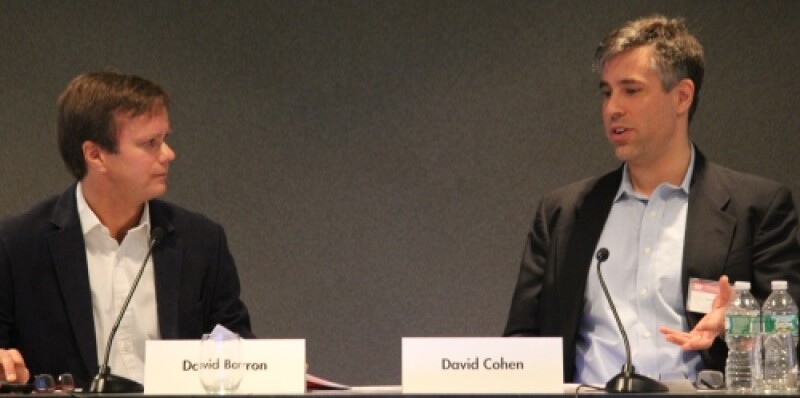
The local division will offer two national judges in countries such as Germany, France and the UK, and will also possibly offer more national influence in the first years. She said a specific local division may be preferred if the local practices seem to be advantageous in a particular situation , for example the French local division may be considered for an ex parte order for preservation of evidence and inspection.
The dominance of Düsseldorf in European litigation will likely be maintained, said speakers.
Kevin Curran, global patent counsel at Bayer Corporation, noted that two thirds of all infringement cases in Europe are brought in Dusseldorf. “If history plays out in the UPC, we are going to see probably that proportion there as well,” he said.
Mark Ridgway of Allen & Overy noted that Düsseldorf will likely have two local judges and one non-local one. “So the same factors pushing towards Düsseldorf now will remain in place.”
He added that it is likely that one judge of the three-judge panel will take the lead. And he also noted the judge rapporteur is likely to have the power. “The truly informed litigant will be keeping on top of who the judges are,” he said.
Clemens Heusch, head of European litigation at Nokia, noted the importance of local knowledge. “A Greek judge is not going to hear a case in English,” he said as an example. “If we get sued in Greece, in order to know the judges and to know the traditions there we would look to someone local.”
The issue of bifurcation got a lot of attention. But some noted it will not be as big a deal as the hype suggests.
“I don’t believe bifurcation is going to be much of an issue,” said Rudger Kleemans, partner at Freshfields Bruckhaus Deringer. “In fact, German judges have already indicated there are not going to bifurcate. Yes, it is possible in the rules but I do not believe it is going to happen.”
Dechert’s Schaffner said bifurcation “is something that has been created to make the Germans happy, but they are not going to use it so I don’t know why they wanted it!”
UPC v the US
The differences between the new European system and the US one were highlighted.
Clemens Heusch noted that unlike the US there is no chance to transfer a case. In contrast, he noted that if Apple is sued in the Eastern District of Texas it can attempt to move the case to California, for example.
Leythem Wall, European patent attorney at Finnegan, contrasted the similarities and differences between central revocation actions and PTAB proceedings. “I am not saying the UPC is like the USPTO proceedings but there are a number of similarities,” he said. “It is not too dissimilar to US post grant proceedings in that discovery is limited and not by right. And the timeline is quick! And it is a front-loaded procedure.”
He said the language of the patent will determine the language of the proceeding. “It is fair to say we will see a lot of English in the revocation proceedings,” said Wall.
The speed of the UPC timelines is in contrast with the EPO, with Wall noting the “well founded reputation of the EPO to take its time”. The EPO claims it works to a 24 month timeline but the crowd at the conference were sceptical about this.
About 5% of all European patent are appealed. About 70% of these patents are at least wounded, with over a quarter killed, said Wall.
“So could central revocation be the most popular use of the UPC, like the IPR system?” asked Wall.
He noted a number of reasons for thinking so. The speed of oral hearing was the biggest, with hearings within 12 months, and a decision within six weeks of the hearing, leading to less than 14 month timeline overall. The cost is significantly cheaper than multi-jurisdictional litigation, with a fixed fee of €20,000 now proposed. It is consistent, with a single action and a decision that covers most of the EU. There is no nine-month restriction. It is possible to have two bites of the cherry, with an EPO opposition allowed within nine months from grant of a patent – “revocation by UPC or EPO is the trump card,” noted Wall. The judges are patent specialists and technical.
But there is one large drawback to the central revocation actions that the US PTAB system does not have. “It is an effective tool in theory but there are ways to avoid it,” said Wall. “Because of the type of fear mongering that I’ve been spreading today, you could see people opting out of the system.”
Another big difference is that claims can be amended – something that is available in theory in the US but rarely in practice.
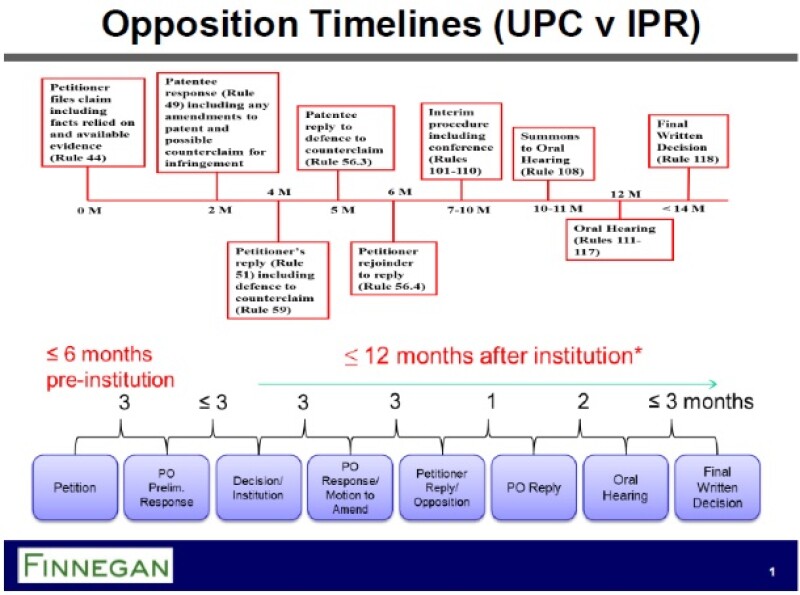
Now is the time!
What was clear from the conference is that practitioners should be thinking about how they will use the UPC now, with its likely implementation just over a year away.
“Now is the time to start working with your European patent attorney,” said Rosie Hardy, UK and European patent attorney, Withers & Rogers.
She also suggested companies could double up their patent strategy with both a Unitary Patent and a European patent. The EPO allows substantial overlap between parent and divisional applications. Having a Unitary Patent and a European patent with different scope could create an offensive tool and defensive tool – with the Unitary Patent with the broadest possible scope to catch infringers and a European patent with the narrowest scope to withstand validity.
